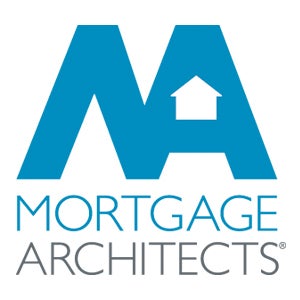In most cases, using my services will cost you nothing! Brokers receive compensation from the Lender in what’s called a “Finder’s Fee”. This fee is based on factors such as the type of interest rate and the term of the mortgage. How much that finder’s fee will be is not a secret and is disclosed to you during the process.
There are circumstances where you, the borrower, will be asked to pay what’s called a “Broker’s Fee”. This comes up when looking at alternate types of lending and is always discussed with you before any type of commitment is made.
The stress test is in place for the Banks to determine how much you, the borrower, can afford and under what circumstances. So when you apply for a mortgage, the bank checks your ability to make payments based on The Bank of Canada qualifying rate amortized over 25 years or +2% of the contract rate, whichever is higher. This means your income needs to be high enough and your existing debt low enough to pay down your mortgage at that higher rate. This does not mean your contracted rate will be this high, it is just to prove you could make your payments in a worst-case scenario.
Different lenders require different forms and documents. It’s best to start the process with as many of the documents potentially required. This way I can quickly put together an application without having too much back and forth and waiting for documents. It is likely that you will be asked to provide documents after the initial ask, but it is to make sure we get the whole picture in order to make a good case to a lender.
An appraisal is unbiased professional estimate of the value of a property for sale. Before a Lender approves and funds a mortgage, they will require an appraisal. The purpose for this is if the actual market value of a property is lower than the sale price and the buyer than defaults on the mortgage, the lender will not be able to sell the property for enough money to cover the loan amount.
Inquiry with your current bank is not a bad idea however, working with a Mortgage Broker gives you a lot more options. We have access to many different lenders who can offer competitive rates and products.
In Canada, if you are buying a property that is less than $1M purchase cost and have a down payment that is less than 20% it is required that you to pay Mortgage Default Insurance. This is called an Insured Mortgage.
It can cost the borrower 2.8% to 4.0% of their mortgage however, it does offer the lowest rates because there is less risk to the lender. If you were to default on your mortgage, the lender gets paid by the insurer.
If you have a down payment of 20% or higher with a purchase cost of under $1M you will have an Insurable mortgage. This type of mortgage is also default insured but the difference is that the lender pays the insurance premium. Otherwise it has the same lending criteria as an Insured Mortgage.
This is called an Uninsurable Mortgage. Refinances and non-owner-occupied single-unit rental properties are also uninsurable mortgages.
The premium can be included into your mortgage payment and paid off with the duration of the loan.
When calculating a mortgage payment the 3 most important factors are the loan amount, interest rate and length of amortization. A loan amount and interest rate with a shorter amortization, will mean higher payments than that same loan amount and interest rate with a longer amortization.
An open mortgage means you are able to pay off your mortgage at any point during your term with no penalty. A closed mortgage means you can cannot pay off your mortgage during your term with out paying a penalty.
With a fixed interest rate, the rate stays the same for the length of your term. A variable interest rate means that the interest rate can fluctuate during the duration of your term. Both have pros and cons that should be discussed with your Borker when deciding what is best for you and your property goals.
A good credit score is important when qualifying for a mortgage. It is considered a snapshot of your financial health at a specific time. It allows for the lender to see your financial past and how consistently you pay off your debts and bills.
It is important to budget closing costs in to your overall budget of buying a home. These closing cost include but are not limited to: lawyer fees, property transfer tax, appraisal of the property, insurance, and you share of the property taxes.
This will depend on whether you have an open or closed mortgage and if you have a variable or fixed interest rate. A close mortgage means you are subject to a penalty if you break your mortgage contract before the end its term. The penalty is then determined on the type of interest rate you have. For a variable interest rate, you typically pay 3 months interest as your penalty. A fixed interest rate, typically has higher penalties as you are paying what’s called the interest rate differential or 3 months interest, whichever is highest.

